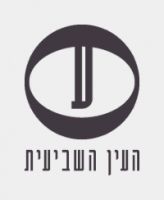A New York Times investigation reveals how the Mexican government used software developed by an Israeli company to hack the phones of anti-corruption lawyers and activists in Mexico.
By Edan Ring

An Israeli cyber and spyware company, NSO, is in the headlines again over its software being used to hack the phones of anti-corruption lawyers and activists in Mexico. Nonetheless, it has been considered a source of “Israeli pride.” Established by veterans of the IDF’s main intelligence unit and run out of Herzliya, NSO’s spying and eavesdropping software – and above all its Pegasus spyware — have earned it global name recognition. Last year, Apple was forced to release an iPhone security update after it was discovered that Pegasus had been used to try and hack the phone of an Emirati human rights activist. The Israeli company had almost managed to take advantage of what was then considered the most secure operating system in the world.
Pegasus is thought to be among the most sophisticated software of its kind. It allows users to remotely take over cellphones and computers, to take pictures with their cameras and record conversations with their microphones, and overall to turn them into spying devices that can pass on huge amounts of their owners’ personal information.
This software has won plaudits from across the world of cyber security, and has raked in money for NSO. The cyber outfit has been valued at around a billion dollars, amid speculation that its investment funder is looking to sell it off — a dream come true for all startup companies in the “Start-up Nation.”
Yet this “Israeli pride” is highly questionable. An expansive investigation by Canadian research center Citizen Lab, published in the New York Times this week, reveals how the Mexican government purchased the Pegasus software and used it to spy on lawyers, journalists and human rights activists working to combat state corruption.
NSO would have charged around $650,000 to track the activity of dozens of iPhones, according to documents previously presented by New York Times researchers, in addition to the $500,000 payment to install the software. Since 2011 the Mexican government has, according to the more recent investigation, paid NSO around $80 million for use of its spyware in order to monitor various human and civil rights advocates and activists.

Among the people the Mexican government spied on was a lawyer representing families of the 43 college students who disappeared while protesting against police in 2014; a senior academic who helped advance anti-corruption laws; two veteran journalists who were among the most prominent critics of the government (along with the young son of one of them); and an American activist who advocated for women who had been sexually harassed by police. Each of them had their phone hacked via a text message that contained relevant personal information and included a malware link that embedded the Pegasus software on the device.
Responding to the investigation published in the New York Times, as well as to other articles in the same vein, NSO claimed that it only sells its spying software to governments. The company further stated that these sales are conducted solely with the approval of the relevant department of defense, and on the condition that the buyer undertakes to only use it for combatting terrorism.
These claims are, of course, naive at best. A cursory glance at Reporters Without Borders’ World Press Freedom Index is revealing: Mexico is placed 147 out of 180 countries, between South Sudan and Russia.
Mexico owes its poor ranking to the number of journalists killed while reporting in the country, as well as to rising corruption, the lack of government transparency and the links between politicians and organized crime. Moreover, a country engaged in a brutal and bloody war with drug cartels will clearly have a looser definition of what constitutes “terrorism” and security agencies.
Israeli companies and successive Israeli governments have long been involved in dirty wars waged by tyrannical and corrupt Latin American regimes. Since the days of the Cold War, Israel has stood shoulder to shoulder with the U.S. government, which has been the main patron of the continent’s many military dictatorships — all under the pretext of halting the proliferation of communism, while trampling civil rights and enabling torture and murder in the process. Israel’s involvement in the crimes of Chile’s General Pinochet, for example, has yet to be completely exposed.
Veterans of Israel’s military apparatus have, over the years, converted their professional expertise — acquired while battling terrorism and repressing Palestinian uprisings — into hefty contracts with shady regimes in Africa and Latin America. Documents published by Wikileaks in 2011 revealed that the U.S. government had concerns around the growth of Global CST, a defense company founded by IDF General (Res.) Israel Ziv, which has established influence and connections in countries such as Colombia (also thought to be a serial human rights offender owing to its war on drug cartels), Panama, Peru, Ecuador, and others.

But the biggest difference between the established security companies founded by IDF veterans, and NSO and the rest of Israel’s ex-Unit 8200 pedigree cyber experts, is the misleading image they portray. While in the past it was clear that we were dealing with the dodgy world of arms dealing, whose players shunned the limelight and media exposure, we are now looking at glittering hi-tech companies that distribute dividends to their investors, host cocktail parties and feature in prestigious lists compiled by Israel’s financial media. These new companies are considered to be burnishing Israel’s reputation before the world.
But amid the Cinderella narrative that the Israeli media and public have crafted around their blooming and beloved cyber industry, it is worth exposing the role of Israel’s newly-developed, destructive tools in the world’s most problematic countries. Indeed, the NYT’s biggest revelation this week was that programmers sitting in glass towers in Herzliya play a significant part in breaching people’s privacy, violating human rights and the propping up of dictatorial regimes. The new mercenaries aren’t wearing commando boots or landing in helicopters, but the part they play in harming human rights and strengthening corruption and despotism — while earning hundreds of millions of dollars in the process — is no less significant.
With Israeli journalists now considered enemies of the people, labeled traitors and “leftists” by the prime minister and his emissaries, we should be paying special attention to the role of Israeli society — and especially its prized hi-tech industry — in the repression of journalists and human rights activists around the world. We each have a cellphone, and we all receive the odd text message with a malicious link. If we’re not careful we could, without realizing, become the next moving targets — just like in Mexico and Turkey.
This article was first published on The Seventh Eye. Read it here.

